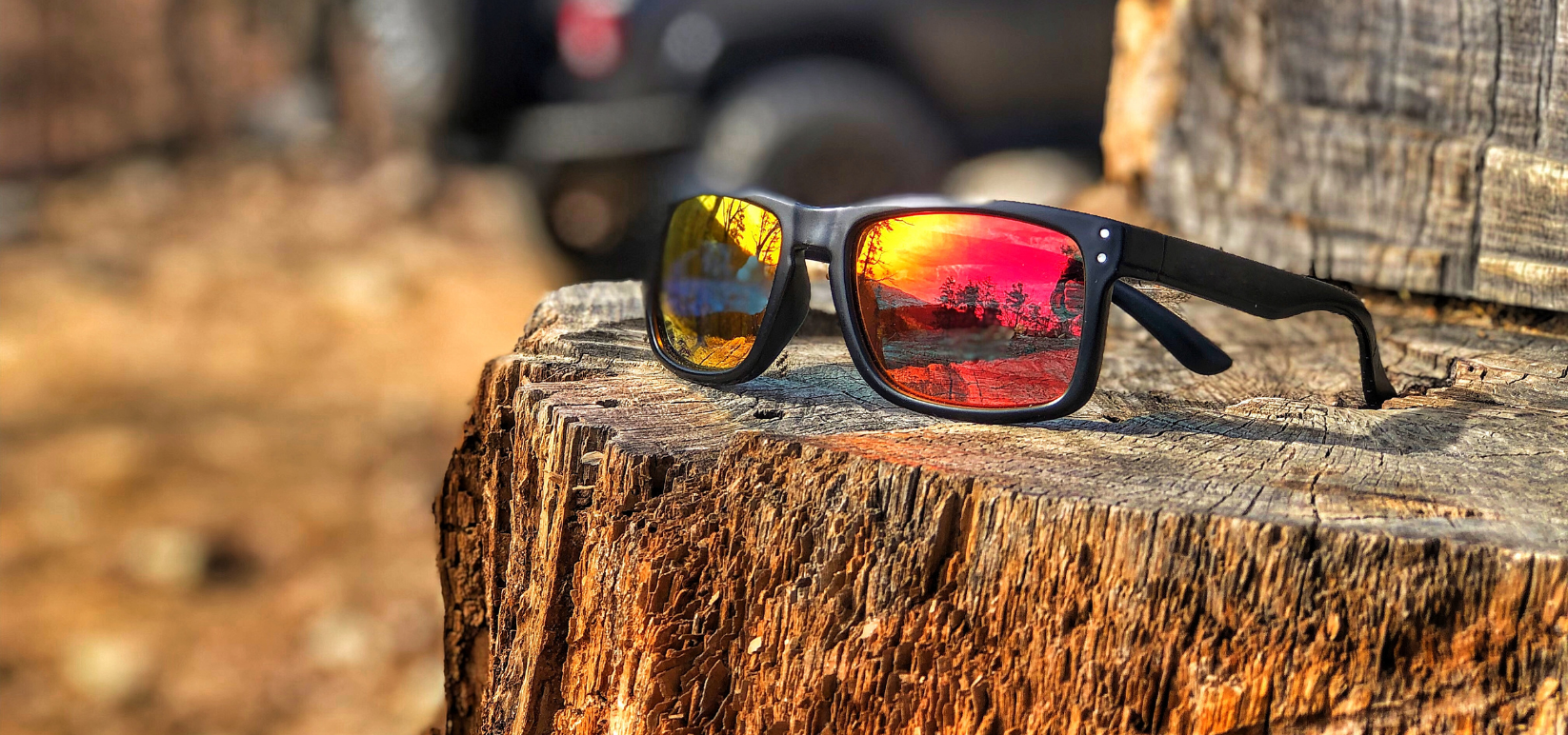- What Are Polarized Sunglasses?
- How Do Polarized Sunglasses Work?
- What is the Difference Between Polarized and Non-polarized?
- Is It Worth Getting Polarized Sunglasses?
- Are Polarized Lenses Bad For You?
Protecting your eyes from harmful UV rays and glare is crucial, especially considering that by age 18, most people have already received around 80% of their lifetime UV exposure. Prolonged exposure to glare can cause discomfort, eye strain, and even headaches. This is where polarized sunglasses come into play, offering a superior solution to regular sunglasses.
At Bayhead Eye Centre, we understand the importance of safeguarding your eyes and are committed to providing our patients with the knowledge and tools necessary to maintain optimal eye health. In this article, we will delve into the differences between polarized and non-polarized lenses and explore how polarized sunglasses work to provide clearer vision in bright conditions. Join us as we shed light on this essential aspect of eye care and discover why polarized sunglasses are a wise choice for those seeking the ultimate protection and visual comfort.

What Are Polarized Sunglasses?
Polarized sunglasses have lenses coated with a unique chemical film that helps reduce the intense and dazzling light reflected off surfaces like water or highways on sunny days. This coating lessens glare and minimizes the number of reflections the eyes perceive, mainly from flat surfaces reflecting light at specific angles.
Polarized lenses allow wearers to observe these surfaces without disruptive glare, enhancing clarity, whether beneath the water’s surface or through sunlit windows.
On the other hand, standard non-polarized sunglasses primarily reduce brightness without directly addressing the glare caused by reflections off smooth surfaces. People often prefer polarized lenses for their ability to alleviate glare, which results in reduced eye strain during various outdoor activities. Both polarized and non-polarized sunglasses are available in various designs, allowing wearers to choose based on personal preference and visual comfort.

How Do Polarized Sunglasses Work?
Reflective surfaces, such as flat water, glass, snow, or smooth hardtops like the hood of a car, can polarize natural sunlight and direct its waves in a single horizontal direction. This concentrated light can create excessive dazzle and glare that can harm the eyes. Polarized sunglasses have a molecular coating that aligns vertically, similar to blinds on a window, effectively blocking out intense horizontal light waves. This molecular structure acts as a barrier, allowing normal concentrations of light to pass through while filtering out glaring horizontal rays.
Wearing polarized lenses reduces glare significantly, leading to clearer images and improved visibility. Although these lenses may darken the surroundings slightly, they enhance visual clarity, enabling you to perceive details more effectively.
What is the Difference Between Polarized and Non-polarized?
Non-polarized lenses evenly filter all sunlight, providing general eye protection by reducing overall intensity. While effective against harmful UV rays, they do not address the shimmer and sparkle associated with water, snow, or glass reflections.
These lenses are versatile and suitable for various activities such as beach outings, errands, or casual walks, offering unaltered color perception without the dimming effect of polarization. On cloudy or overcast days, non-polarized lenses remain a practical choice.
In contrast, polarized sunglasses filter ambient light and eliminate bright reflected light, offering enhanced visual clarity. This advanced feature benefits individuals engaged in specific activities:
- Anglers can observe beneath the water’s surface.
- Boaters can discern wave textures more clearly.
- Drivers can maintain focused vision on the road.
- Beachgoers can discern sand and water details more effectively.
- Golfers experience reduced glare on fairways.
- Snow-sport enthusiasts often opt for polarized lenses due to glare from snow.
Both lens types contribute to eye comfort on sunny days, but polarized lenses actively combat the debilitating effects of bright sunlight. Whether engaging in water activities, driving, or outdoor sports, polarized sunglasses are recommended for individuals seeking optimal eye protection against glare and reflections.
Is It Worth Getting Polarized Sunglasses?
Polarized lenses offer the same level of UV protection as non-polarized lenses, even though bright light sources are significantly less uncomfortable when wearing them. Both sunglasses provide essential UV protection for individuals frequently exposed to outdoor environments. However, polarized lenses enhance color perception and contour accuracy, making them a preferred choice for outdoor enthusiasts and athletes.
It’s important to note that polarized lenses may not be suitable for certain activities. For instance, pilots often opt for non-polarized lenses due to compatibility issues with digital screens. Additionally, polarized lenses may hinder the ability to identify shiny patches of ice, particularly in snow-related activities like skiing or snowboarding.
Individuals can consider carrying polarized and non-polarized sunglasses to address varying environmental conditions. This approach ensures adaptability to changing glare levels and environmental factors, such as sunny days with icy roads. Polarized lenses reduce eye strain and reflection in bright sunlight, while non-polarized sunglasses suffice for cloudy or overcast conditions, providing essential UV protection.

Are Polarized Lenses Bad For You?
Despite their many benefits, some may wonder if polarized lenses negatively affect vision. Polarized lenses are safe for regular use and pose no known health risks. However, choosing sunglasses with polarized lenses from a reputable eyewear provider is essential to ensuring quality and effectiveness. Polarized sunglasses can provide years of reliable eye protection and clear vision with proper care and maintenance.
Ready to experience the difference with polarized sunglasses? Schedule an appointment with Bayhead Eye Centre today and explore our wide selection of premium eyewear. Our experienced optometrists will help you find the perfect pair of polarized sunglasses to suit your lifestyle and vision needs.


